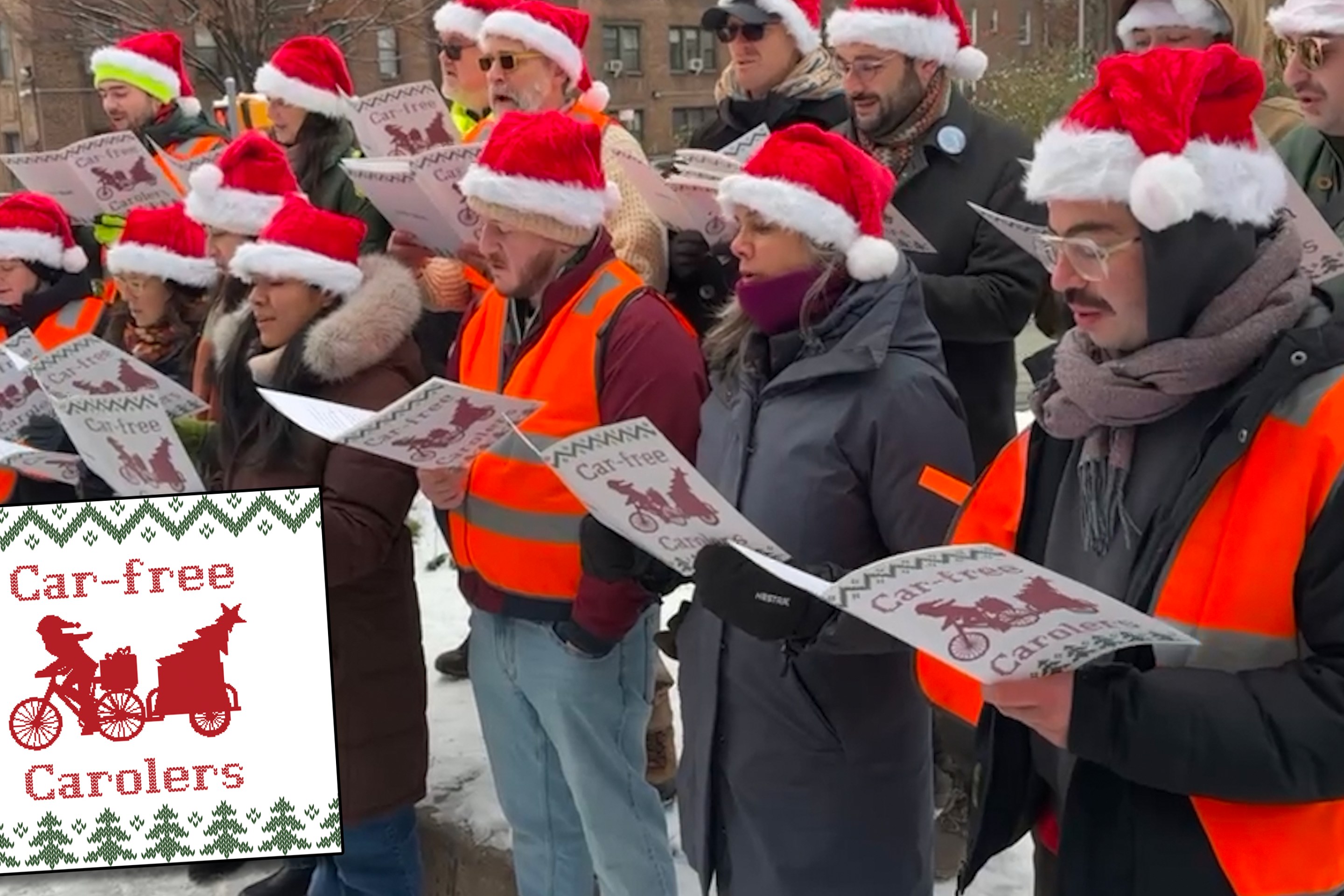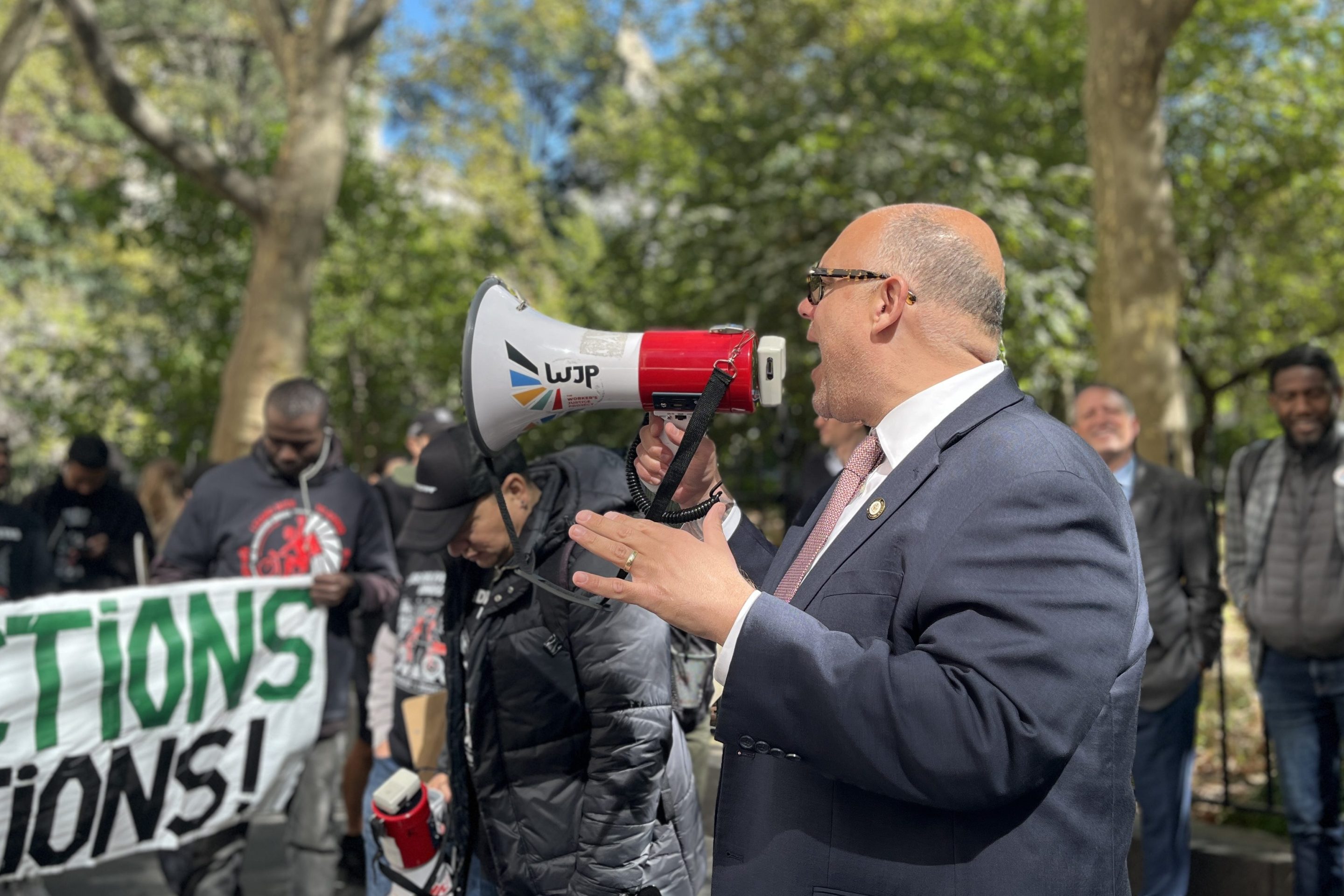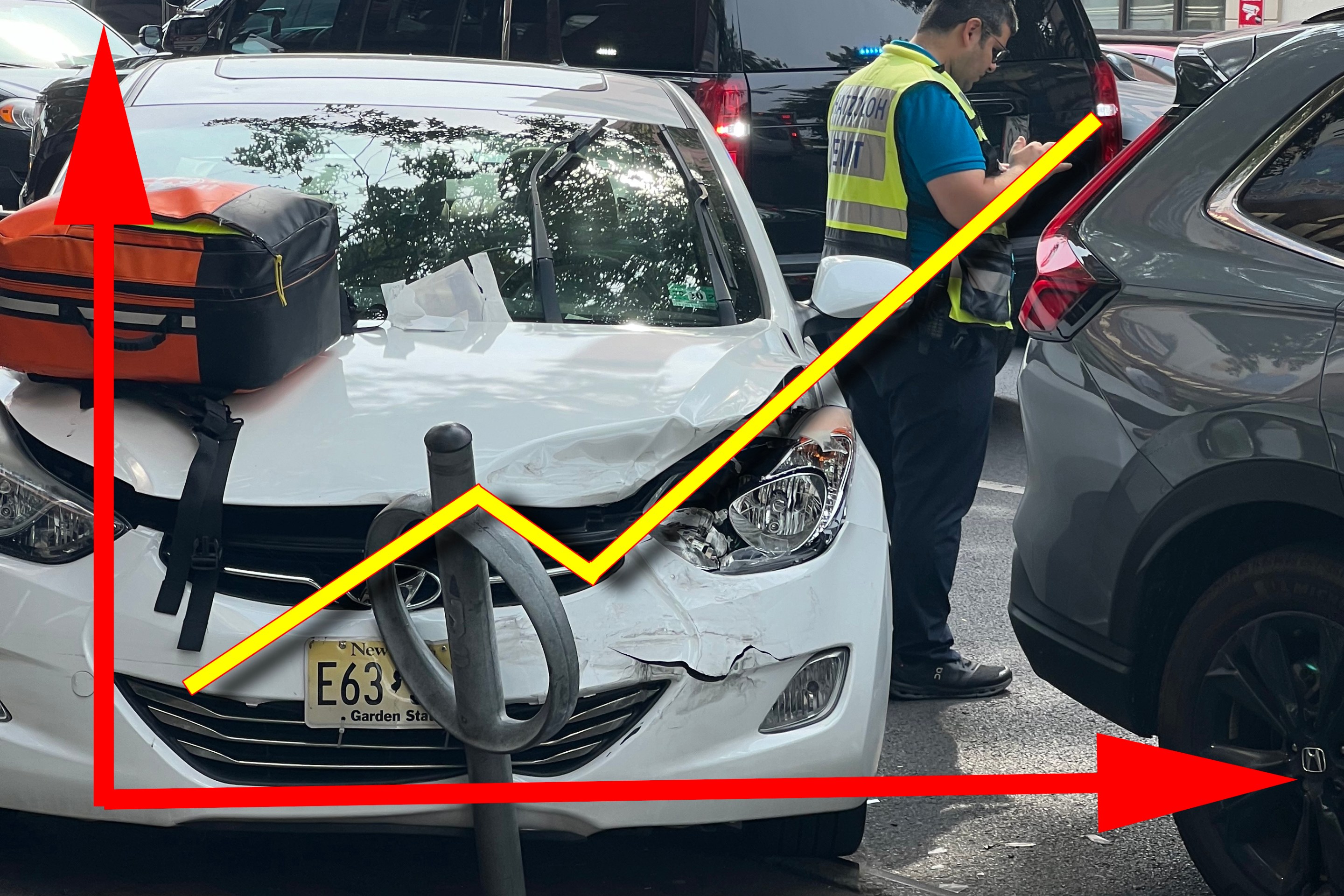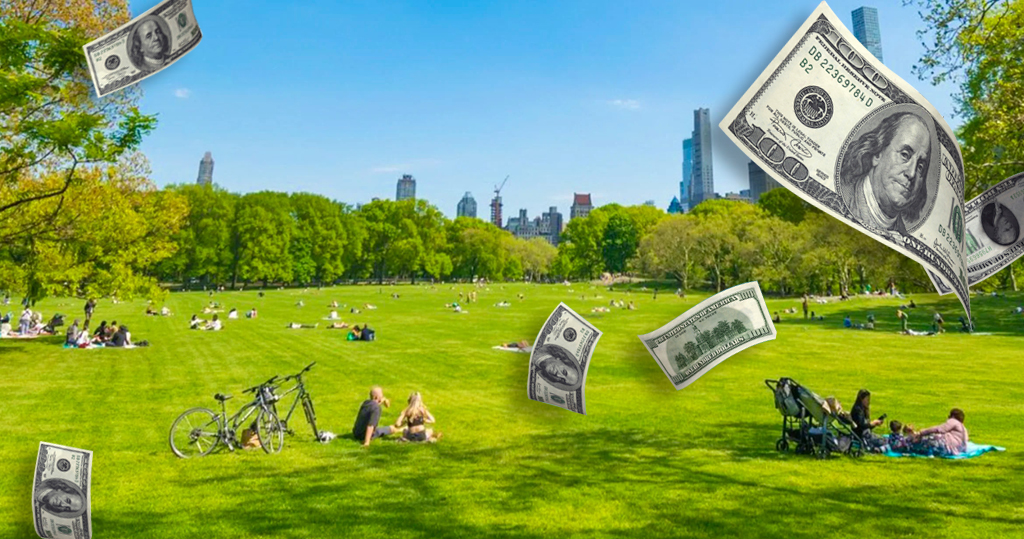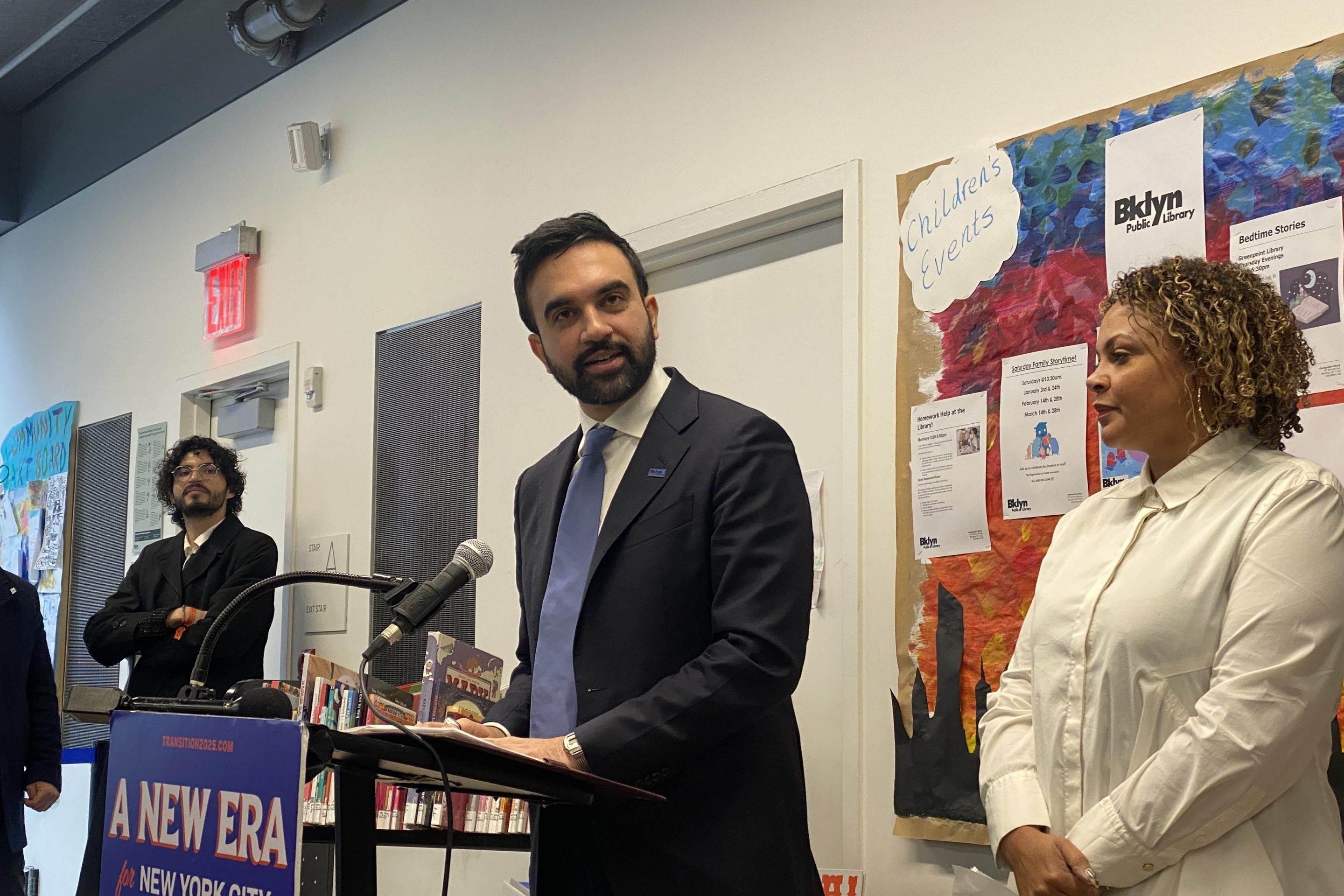Outside Cooper Union yesterday evening, the sidewalks were packed with news cameras, security squads, political campaigners and activists pressing passersby with their plans for the MTA. Inside, the transit authority held the first of ten mandated public hearings on its proposed fare and toll hikes. Though attendance was sparse, the citizens who lined up to speak in all but unanimous opposition to the fare hike spared no venom for whichever target they chose, the MTA or the state government.
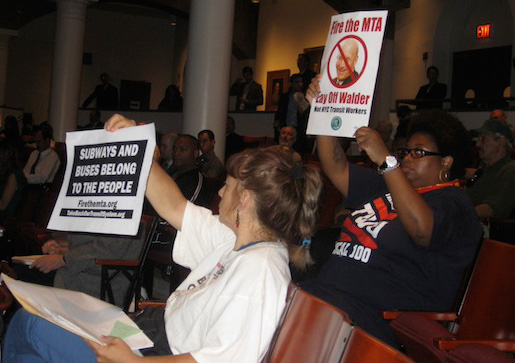
More often than not, it was the transit agency who received the brunt of their anger, despite the abysmal performance of the state legislature and other elected officials when it comes to the last several years of transit policy.
At issue is a slate of fare and toll hikes. The most significant would raise the price of a 30-day transit pass from $89 for unlimited rides to either $104, a 17 percent jump, or to $99 with a 90-trip cap.
The hearing took place on the eve of New York's primary elections, a time when the elected representatives who've forced the transit agency into its current position should have to reckon with the consequences. The state legislature has been slashing its general fund contributions to the MTA for years and last December raided more than $100 million in dedicated transit taxes from the authority. State pols rejected revenue streams that could fund transit -- congestion pricing and bridge tolls -- in 2008 and 2009.
Not one of the first thirty speakers, however, made the connection and suggested that transit riders employ their most powerful tool, the ballot, in today's elections (though one did suggest voting in November). That said, the primaries had the much-appreciated side effect of sparing everyone the train of self-aggrandizing, MTA-bashing politicians who monopolized microphones during the previous round of MTA public hearings.
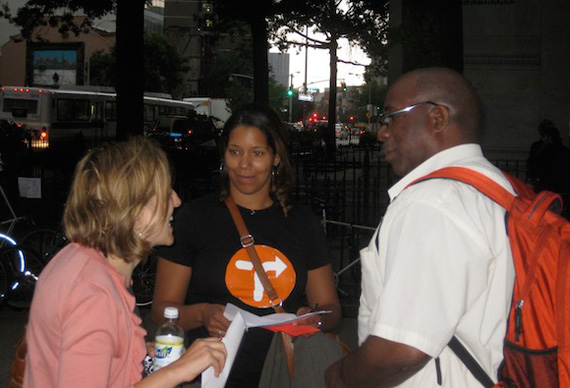
The only pol who appeared in person was Manhattan Assembly Member Richard Gottfried. Perhaps surprisingly, Gottfried didn't attack the transit authority. Insofar as he did criticize the MTA, it was for serving as his colleagues' punching bag. "I urge the MTA to stand its ground," he said, "and demand that the federal, state, and local governments make adequate funds available for public transit." Claiming that the farebox makes up more of the MTA's revenues than any other transit system in country, he argued that "riders are already overpaying."
But in most cases, public testifiers took out their anger on the MTA.
"This is a board that is made up of bankers and real estate developers, trucking company executives," accused Gavriel Gemma, an organizer with Take Back Our Transit System, a group affiliated with the TWU. "You don't ride in the system. You ride in limousines and laugh at us." (The state legislators who have far more control over the agency's finances than the MTA board, it should be noted, are not known for riding in the system either.) Gemma proposed -- and many speakers seconded -- revoking the city's lease of the subways to the MTA.
Velda Fuller accused MTA CEO Jay Walder of impoverishing New Yorkers through fare hikes and layoffs. "People will suffer in the winter and they will perish because of this situation," she said.
Another speaker recited a four-verse ditty mocking Walder to the tune of "My Darling Clementine."
Some speakers did train their guns on the state government, creating a palpable difference between last night's hearing and those in March, in which anger was focused exclusively at the MTA. "This was brought on by former Governor Pataki and his henchpeople," said David Kupferberg. "They should pay, not us."
And in a few cases constructive ideas came to the surface. Susan Stetzer, the district manager of Manhattan CB 3, called on the state to step up with funding. Trudy Mason, a member of the NYC Transit Riders Council, specified that congestion pricing, bridge tolls, or a gas tax would be the best ways for the state to raise that revenue. Other speakers put in their two cents about how best to structure the fare hike, and a handful even gave thumbs up to the MTA proposal of adding a $1 surcharge each time riders purchase a new Metrocard.
The hearings continue on their tour of the downstate area through next week. The next will be tomorrow night in the Bronx.
